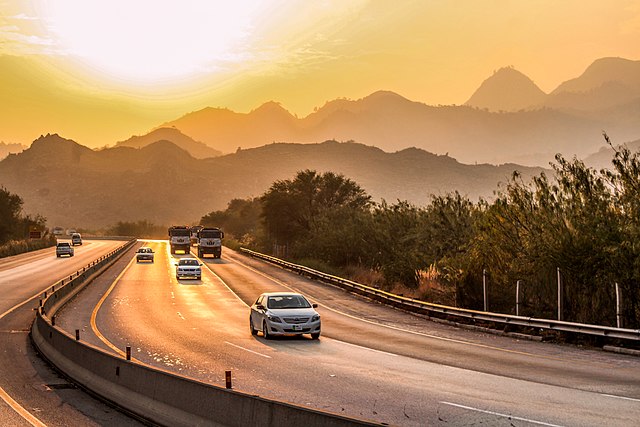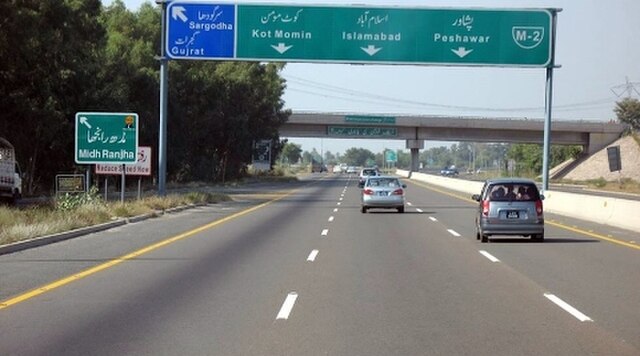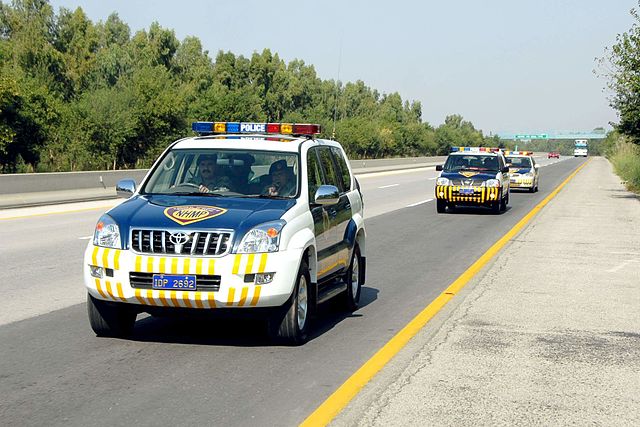Transport in Pakistan is extensive and varied. In recent years, new national highways have been built, with the addition of motorways which have improved trade and logistics within the country. Pakistan's rail network is also undergoing expansion in recent years. Airports and seaports have been built with the addition of foreign and domestic funding. Transportation challenges in Pakistan are escalating due to poor planning, inadequate governance, and corrupt practices. Consequently, the nation are grappling with a significant crisis in their transportation systems.
Lahore Junction Railway Station, c.1895.
The motorway passes through the Salt Range mountains
Jingle trucks on Karakoram Highway
Nagan Chowrangi Flyover, Karachi
Motorways of Pakistan are a network of multiple-lane, high-speed, controlled-access highways in Pakistan which are owned, maintained, and operated federally by Pakistan's National Highway Authority. At present, 2567 km of motorways are operational, while an additional 1191 km are under construction. Motorways are a part of Pakistan's “National Trade Corridor Project” and “China-Pakistan Belt Road Initiative,” from Khunjerab Pass near the Chinese border to Gwadar in Balochistan. There are a total of 16 motorways, 11 of which are operational, while some are under construction and others are planned.
M-2 motorway in the Salt Range
M-2 motorway exit to Sargodha
Motorway police patrolling the M-2 motorway
A RFID MTAG used for electronic toll collection on controlled-access highways/motorways within Pakistan.







